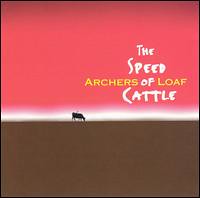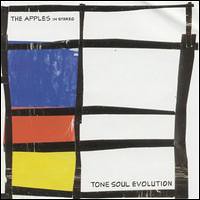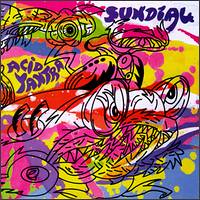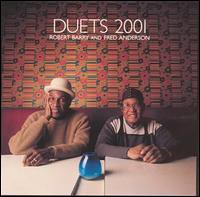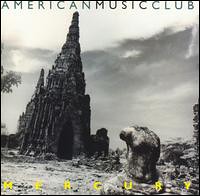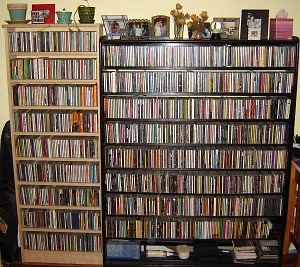All I Ever Wanted Was to be Your Spine
Artist: Archers of Loaf
Albums: Icky Mettle; Vee Vee; The Speed of Cattle; All the Nations Airports
Source: Bought used (IM); Bought new (VV, SOC); Promo (ATNA)
I’m finding it a little hard to believe that I’m about two months and 20 entries into this project and I’m not even finished with the A’s. Heck, I’m not even through the first shelf.
It’s also still hard to believe that I can’t show this project to my friend J.P. He would have loved it, but he’s been dead for more than five years now. It’s not something I’m necessarily angry about anymore; I’m often sad about it, but mostly I just think it’s absurd. He was 29, he was happy at work, about to get married and was in remission from Hodgkin’s Disease, a curable form of cancer. How does it make any sort of sense that he’s not alive right now? Like I said, it’s ridiculous.
In most cases (including this one, probably) it would be an oversimplification to say that my friendship with J.P. was based on music. But we first got started talking about the Pixies during my freshman year of college, and it was a conversation that never really stopped for the rest of the decade that I knew him. We talked about other things, had other interests that drew our attentions, but in the end music was the first, best way we knew each other. (Which also makes it hard to believe I got through 20 entries without mentioning him; the odds that I’d go through that many records not associated with him in some way would have struck me as pretty thin.)
The Archers of Loaf, like so many of the bands that I count among my favorites (and quite a few that I don’t), came to J.P. and me together. We were doing an episode of the college radio show that we did together for almost four years, and the band’s debut disc Icky Mettle was new in the station. Our first instinct, as always, was to look for a funny song title (the band already had a name that would be fun to say into the station’s microphones, so that was covered). We started with “Hate Paste,” which was loud and cool and pretty good, though not great. Then we got around to “Web in Front,” which was pretty much right on the money – “All I ever wanted was to be your spine” went the chorus, and who wouldn’t want to get behind that?
From there, we listened to more records, saw the band live, and they always delivered. But the pinnacle of our Archers experience came at a Yo La Tengo show at the Trocadero in Philly. We got there early and got to talking to the other geeks who were there to secure a solid spot in front (over to the left of the stage, where more of the action always took place). One guy pointed to J.P.’s Archers t-shirt and asked, “You like Archers of Loaf?” Thank goodness he didn’t give a snide reply like, “No, I’m wearing this shirt ironically,” because the guy’s next question was, “You want a free copy of their new album? I have a box of promo discs at home.”
Score. Ever the pal, J.P. handed over his mailing address along with a note that he needed two copies of All the Nations Airports – one for me, too. It’s the disc sitting on my desk right now, and while it’s a great album, it also reminds me how stupid, how utterly absurd it is that I can’t remind J.P. of this story right now. He loved telling it, and always painted the scene just like I remembered it: fun, plugged into the music, striking up a discussion about a band we loved.
And that’s that hardest part: I still have friends who like music, but it’s not the same. I really miss talking about it and hearing it and living through it with J.P., and there’s no one I’ll be able to be like that with again.
When we first heard this band, “All I ever wanted was to be your spine” sounded a note of defiant…well, defiant something. It was hard to tell, but the swirling guitar noise and Eric Bachmann’s stark vocal bark made it make sense. Ten years later, a bout of spinal meningitis hit J.P. during his final, last-ditch treatment for the cancer that killed him just a few months later. Shit, I would have been his spine right there and then, if it would have helped. Now I hear the line a little harder and sadder, but I also try to pogo around the room when the Archers come on, ignoring the sheer absurdity of being in my 30s and doing it without J.P.
SISOSIG? Not a chance of any of this going anywhere. One of the worst parts about J.P. being dead all of these years is that as time goes on, I don’t have any new memories of him. I need the ones like this.
